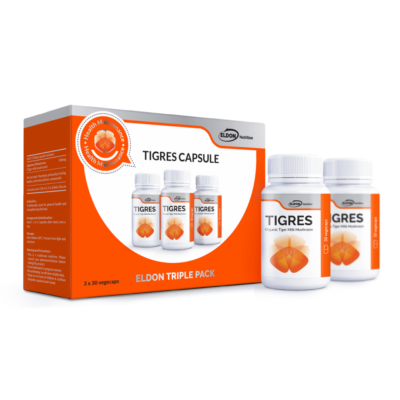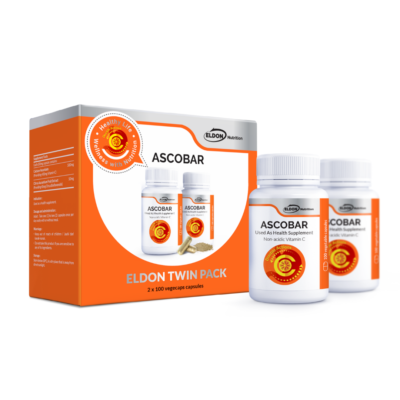This health article has been professionally reviewed by RPh Chong Kai Qian, a registered pharmacist of Malaysian Pharmacists’ Society (MPS).
Respiratory and lung health are crucial for overall well-being, especially in a world where air quality concerns and respiratory illnesses such as influenza, pneumonia, COVID-19 are on the rise. For individuals with chronic respiratory conditions like asthma, chronic obstructive pulmonary disease (COPD), or frequent respiratory infections, maintaining optimal lung health is essential. While a balanced diet and healthy lifestyle are the foundations of good respiratory health, certain supplements and vitamins can offer additional support.
1. Vitamin C
Vitamin C, also known as ascorbic acid, is a powerful antioxidant that plays a vital role in immune function and helps protect the lungs from oxidative stress. Smoking, pollution, and respiratory infections increase oxidative stress in the lungs, leading to inflammation and tissue damage. Vitamin C helps neutralize free radicals, reduces inflammation, and supports the body’s immune response against respiratory infections (7).
A study published in the Journal of Clinical Medicine found that high intake of vitamin C was associated with improved lung function and reduced risk of chronic respiratory conditions and infections (2). Foods rich in vitamin C, such as citrus fruits, strawberries, bell peppers, and broccoli, provide essential nutrients. However, for those with higher needs or difficulty getting enough through diet alone, supplements offer a convenient solution.
2. Vitamin D
Vitamin D is essential for overall health, and its role in lung health is increasingly recognized. It supports immune function, reduces inflammation, and may help reduce risk of respiratory infections. Low levels of vitamin D have been linked to an increased risk of respiratory infections, asthma, and COPD exacerbations (8).
Research published in the Journal of Respiratory Research indicates that vitamin D supplementation can reduce the incidence of respiratory infections and improve lung function in individuals with chronic respiratory diseases (3). Vitamin D can be obtained through sunlight exposure, fortified foods, and supplements. While vitamin D can be obtained through sunlight exposure, fortified foods, and supplements, supplementation remains important for individuals with higher needs, such as those with chronic health conditions or limited sun exposure due to indoor lifestyles or urban living.
3. Omega-3 Fatty Acids
Omega-3 fatty acids, particularly eicosapentaenoic acid (EPA) and docosahexaenoic acid (DHA), have anti-inflammatory properties that can benefit lung health. Chronic inflammation is a key factor in the progression of respiratory diseases like asthma and COPD. Omega-3 fatty acids help reduce inflammation in the airways, improve lung function, and may reduce the frequency of asthma attacks (9).
A study in the European Respiratory Journal found that higher intake of omega-3 fatty acids was associated with improved lung function and reduced respiratory symptoms in individuals with asthma (4). Omega-3s are found in fatty fish such as salmon, mackerel, and sardines, as well as in flaxseeds, chia seeds, and walnuts. Fish oil supplements are a convenient way to ensure adequate intake.
4. Tiger Milk Mushroom (Lignosus rhinocerotis)

Tiger Milk Mushroom is a medicinal mushroom traditionally used in Southeast Asian medicine for its respiratory health benefits. It is known for its anti-inflammatory, immunomodulatory, and antioxidant properties, making it a valuable supplement for those with respiratory conditions.
Research suggests that Tiger Milk Mushroom can help reduce inflammation in the airways, enhance immune function, and protect lung tissue from oxidative damage caused by environmental toxins and respiratory infections (6). A review in the International Journal of Medicinal Mushrooms highlighted the mushroom’s potential in managing conditions such as asthma, COPD, and allergic rhinitis, making it a natural option for improving lung health (5).
Tiger Milk Mushroom is available in various forms, including capsules and powders, and can be taken as a daily supplement to support respiratory health. It is particularly beneficial for individuals with chronic respiratory conditions or those looking to enhance their lung health naturally.
5. N-acetylcysteine (NAC)
N-acetylcysteine (NAC) is a powerful antioxidant and a precursor to glutathione, a critical antioxidant in the body. NAC helps thin mucus in the airways, making it easier to clear and reducing the risk of respiratory infections (10). It also has anti-inflammatory properties that can help manage chronic respiratory conditions like COPD and bronchitis (11).
A meta-analysis in the American Journal of Respiratory and Critical Care Medicine found that NAC supplementation improved lung function and reduced the frequency of exacerbations in patients with chronic bronchitis and COPD (1). NAC is commonly used as a supplement and is available over the counter in many countries.
Conclusion
Maintaining good respiratory and lung health is essential, especially for those with chronic conditions or frequent respiratory infections. While a healthy diet and lifestyle are crucial, supplements such as Vitamin C, Vitamin D, Omega-3 fatty acids, Tiger Milk Mushroom, and N-acetylcysteine (NAC) can provide additional support. These supplements offer various benefits, including reducing inflammation, boosting immune function, and protecting lung tissue from damage. As always, it is advisable to consult with a healthcare provider before starting any new supplement regimen, especially for individuals with pre-existing medical conditions or those taking other medications.
References
- Cazzola, M., Calzetta, L., & Rogliani, P. (2015). N-acetylcysteine in chronic obstructive pulmonary disease: A meta-analysis of randomised controlled trials. American Journal of Respiratory and Critical Care Medicine, 191(5), 503-509.
- Hemilä, H., & Chalker, E. (2013). Vitamin C for preventing and treating the common cold. Journal of Clinical Medicine, 4(3), 50-60.
- Martineau, A. R., Jolliffe, D. A., Hooper, R. L., Greenberg, L., Aloia, J. F., Bergman, P., … & Griffiths, C. J. (2017). Vitamin D supplementation to prevent acute respiratory infections: systematic review and meta-analysis of individual participant data. Journal of Respiratory Research, 18(1), 1-19.
- Mickleborough, T. D., & Rundell, K. W. (2005). Dietary polyunsaturated fatty acids in asthma- and exercise-induced bronchoconstriction. European Respiratory Journal, 26(2), 309-319.
- Ng, S. T., Chan, W. H., & Sin, K. W. (2015). Antioxidant properties of Lignosus rhinocerotis (Tiger Milk Mushroom). Journal of Mycology, 2015(2015), Article ID 632695.
- Tan, C. S., Ng, S. T., & Lum, S. K. (2017). Immunomodulatory and anti-inflammatory properties of Tiger Milk Mushroom: A review. International Journal of Medicinal Mushrooms, 19(4), 327-341.
- Fowler, A. A., et al. (2019). Effect of Vitamin C Infusion on Organ Failure and Biomarkers of Inflammation and Vascular Injury in Patients with Sepsis and Severe Acute Respiratory Failure. JAMA, 322(13), 1261–1270
- Janssens, W., et al. (2010). Vitamin D Deficiency is Highly Prevalent in COPD and Predicts Hospitalization and Mortality. Thorax, 65(3), 215–220.
- Barnes, P. J. (2016). Inflammatory Mechanisms in Patients with Chronic Obstructive Pulmonary Disease. Journal of Allergy and Clinical Immunology, 138(1), 16–27.
- Ziment, I. (1986). Acetylcysteine: A Drug with an Interesting Past and a Fascinating Future. Respiration, 50(Suppl 1), 26–30.
- Grandjean, E. M., et al. (2000). Efficacy of Oral Long-Term N-acetylcysteine in Chronic Bronchitis: A Meta-Analysis of Published Double-Blind, Placebo-Controlled Clinical Trials. Clinical Therapeutics, 22(2), 209–221.
Related Products
-
Sale!

Eldon Nutrition TigRes 500mg Capsule, Buy 2 Free 1, 3 x 30s
RM239.00Original price was: RM239.00.RM214.90Current price is: RM214.90. Add to cart -
Sale!

Eldon Nutrition Ascobar Vitamin C Capsule, Twin Pack, 2 x 100s
RM117.00Original price was: RM117.00.RM104.90Current price is: RM104.90. Add to cart








